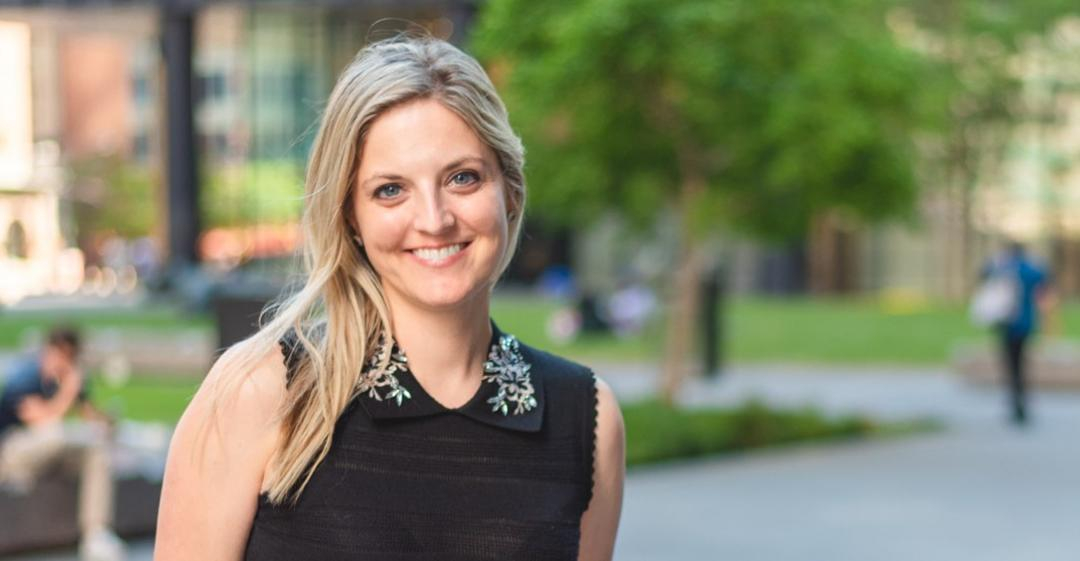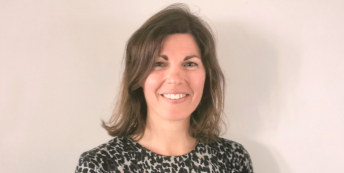“I felt I had a lot more skills than my existing job was making use of.”

What work were you doing previously?
I was a capital markets lawyer.
My work involved working long hours closing deals and taking companies public.
What are you doing now?
I’m CEO and Co-founder of a technology platform disrupting the global capital markets.
Our mission is to make the capital markets better for everyone by delivering speed, innovation and efficiency in an elegant way.
How did you feel in your work before you decided to make the change?
I was stressed.
I was also bored and underpaid, working long hours.
It's ironic because now I make less but am much more fulfilled!
Why did you change?
I had a passion to do something different, and be in an industry that was growing instead of shrinking.
I didn't want to keep putting in the time and the years to climb the ladder, when I felt I could jump three rungs.
I tried to find a better fit, but ultimately, I felt I could move faster co-founding a company. I felt I had a lot more skills than my existing job was making use of, despite it being challenging.
When was the moment you decided to make the change?
It was having children that caused me to follow something I was passionate about.
I want my children to be inspired to live their lives to the fullest.
After all, if you're going to be away from them for long hours, it really pushes you to make sure what you're doing is worth it. I thought, what is the example you want to set that they will see?
How did you choose your new career?
It happened gradually after seeing an opportunity, meeting my co-founder, growing the business we were in, and then moving on to pursuing a new challenge.
We spent years trying to understand the new market we were getting into (technology). We didn't know anything about it coming from the legal field. But we continued to pursue it and didn't give up.
Are you happy with the change?
100%.
If you follow your passions you are much more fulfilled, regardless of what you are doing.
What do you miss and what don't you miss?
I don't miss anything.
I was ready to move on to the next chapter, so there's been nothing to miss.
I'm grateful for the experiences I had, the learnings I had and the close colleagues who became friends. Working in a law firm taught me so many incredible skills I still use today, and really pushed me along.
How did you go about making the shift?
We spent years working on the business after hours.
Law is a demanding job to begin with, and we added starting a business on top of it. At one point I had two small children, my husband was working full-time while pursuing an MBA, and I had a demanding law career as well as a business. I knew it was time to cut something out.
So we raised a funding round for the business, and I cut out the job that wasn't making me happy to focus on the one that was.
What didn't go well? What wrong turns did you take?
We took so many wrong turns.
We built MVPs (minimum viable products), then threw them out. Wasted money, wasted time. Talked to a lot of people who said we were crazy or gave us other negative feedback.
But we learned from the mistakes, pivoted, and kept going. As long as we were learning, we were getting better, and we figured it out.
How did you handle your finances to make your shift possible?
This was probably the most difficult and scary aspect to me – leaving a high-paying, secure job for the insecurity of a start-up.
If you read articles about start-ups, almost everything will tell you about the risks and give you reasons not to do it. But hey, you only live once!
I didn't plan much, I just jumped. Of course I was lucky as my husband supported the decision, and we found a way to make it work.
What was the most difficult thing about changing?
With change has come failure, and we had to expect and be OK with that, seeing it as an opportunity to learn.
Our mantra to running the company is to embrace a state of constant change. If you enjoy being in this state, you can grow really fast.
I think this applies to business as well as personally. If you are a person who can "roll with the punches", or observe slight nuanced changes in your environment (whether it's people, the economy or business practices) and adapt things, this is the greatest possible skill to achieve success.
What help did you get? 
So much help: from my husband, co-founder, family, advisors, investors, potential investors, the start-up community, my former employer, contacts in my network.
The help I've received has been overwhelming.
The other day I was trying to get connected to a high profile client, the kind that it almost seems ridiculous to pursue. I posted a message on Facebook and four people in my network saw it and reached out to assist. I was blown away.
What resources would you recommend to others?
Don't be afraid to ask. So many people will help if you ask.
Build a network of people who support you. That means being observant of influences in your life that are not supporting you to succeed, and not focusing your energy there. I think this is particularly important for women.
Anytime you don't know anything, you can easily Google an answer, or something that will tell you how to find an answer.
What have you learnt in the process?
I've learnt and grown so much, this is a hard thing to crystallise.
I've learnt a process for overcoming incredibly stressful things, and that there is always an answer. Things that used to stress me out don't even register as stressors today.
I've learnt to truly not care what other people think of me, and that the most important thing is what I think of myself. I try to treat people well. I've learnt to communicate better, and how to rely on other people.
I've also learnt that it's true that the more successful I get, the luckier I get. People don't see all the wrong turns and late nights, they just see the success. They don't know the journey it took to get there, and assume it was easy.
What would you advise others to do in the same situation?
Don't spend too much time thinking about doing something.
If your gut's saying to do it, and after analysis, you think it is a positive step for your life, just do it. You can never de-risk everything. I've watched people consider becoming an entrepreneur endlessly and never do it because they can't get comfortable with the risk.
You aren't going to de-risk it, it's a risky pursuit. So understand that, own that, and make the jump. Or acknowledge it feels too risky, and move on to find something more intermediate. But don't waste a lot of time considering it for months or years without doing anything about it.
To find out more about Rebecca's business, visit www.dealmaker.tech
What lessons could you take from Rebecca's story to use in your own career change? Let us know in the comments below.



